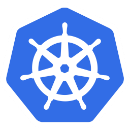Logz.io: collection logs from Kubernetes – fluentd vs filebeat
1 February 2021We are using Logz.io to collect our Kubernetes cluster logs (also, there is a local Loki instance). Logs are collected and processed by a Fluentd pod on every WorkerNode which are deployed from a DaemonSet in its default configuration, see the documentation here – logzio-k8s. The problem we faced is that those pods are consuming… Read More »






